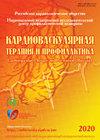Motivation and responsibility of employees of primary health care facilities: results of a social survey on current motivation measures
Q3 Social Sciences
引用次数: 0
Abstract
Aim. To study the relevance of motivation measures based on the survey of medical staff.Material and methods. Medical staff of adult primary health care facilities was surveyed using an original questionnaire regarding the organization of work, the importance of financial and non-financial incentives. The survey was strictly voluntary and anonymous, and conducted electronically and on paper. In total, 35191 questionnaires were accepted for processing. Processing was carried out using the method of descriptive statistics.Results. The organization of work environment is of the greatest importance to respondents (>80%), while in second place is the presence of clear criteria for work efficiency assessment, and in third place — a clear incentive and penal scheme. Respondents rated the opportunity for contact with the administration more highly than "communicating work assessment criteria to employees". The undisputed top in financial incentives is payments for high performance criteria in all categories of personnel. Of the non-financial measures, the most popular were a letter of gratitude from the manager and permission to independently plan working hours (maximum among medical specialists (51%)).Conclusion. The results obtained make it possible to highlight the main directions for motivation system of medical staff as follows: clear evaluation criteria for all personnel categories, provision of conditions for fulfilling the developed criteria, active outreach on evaluation criteria, incentive payments and other measures of material incentives, development of targeted incentive technologies, feedback with employees on issues related to their performance, working conditions, etc., developing a system of non-financial incentives and corporate culture.基层医疗机构员工的积极性和责任感:关于当前激励措施的社会调查结果
目的根据对医务人员的调查,研究激励措施的相关性。使用原始问卷对成人初级卫生保健机构的医务人员进行调查,内容涉及工作安排、经济和非经济激励措施的重要性。调查严格遵循自愿和匿名原则,以电子和纸质形式进行。共接受处理了 35191 份问卷。调查采用描述性统计方法进行。受访者最看重的是工作环境的安排(超过 80%),其次是是否有明确的工作效率评估标准,第三是是否有明确的奖惩制度。受访者对与行政部门接触的机会的评价高于 "向员工传达工作评估标准"。在经济激励方面,无可争议的第一名是为各类人员的高绩效标准支付报酬。在非经济措施中,最受欢迎的是经理的感谢信和允许独立计划工作时间(在医学专家中最 多,占 51%)。根据所获得的结果,可以强调医务人员激励制度的主要方向如下:为各类人员制定明 确的评价标准,为达到所制定的标准提供条件,积极推广评价标准、奖励金和其他物质奖 励措施,开发有针对性的激励技术,就与员工绩效、工作条件等有关的问题与员工进行反 馈,制定非经济激励制度和企业文化。
本文章由计算机程序翻译,如有差异,请以英文原文为准。
求助全文
约1分钟内获得全文
求助全文
来源期刊

Cardiovascular Therapy and Prevention
Medicine-Cardiology and Cardiovascular Medicine
CiteScore
1.70
自引率
0.00%
发文量
155
审稿时长
6-12 weeks
期刊介绍:
The most important objectives of the journal are: the generalization of scientific and practical achievements in the field of cardiology, increasing scientific and practical skills of cardiologists.
The scientific concept of publication does the publication of modern achievements in the field of epidemiology, prevention and treatment of cardiovascular diseases, the results of research, national and international clinical trials.
For publication in the journal are invited both domestic and foreign scientists and clinicians working in the field of cardiology, as well as doctors of other specialties.
The magazine covers various issues in cardiology and related specialties. Each issue is prepared by Executive editor of the issue, a respected specialist in the field of epidemiology, prevention and treatment of cardiovascular diseases.
The main focus of the publication — scientific articles on original research, the pharmacotherapy of cardiovascular disease, new diagnostic methods.
All members of the group of authors should meet all four criteria of authorship set forth in the ICMJE recommendations: 1) concept and design development or data analysis and interpretation, and 2) manuscript justification or verification of critical intellectual content, and 3) final approval for publication of the manuscript, and 4) consent to be responsible for all aspects of the work, and assume that issues relating to the thoroughness and diligent execution of any part of the study submitted are duly investigated and resolved.
Great importance the editors attached to the preparation of scientific papers by groups of authors at a high level, literacy, authors, and their ownership information, availability of research results not only to colleagues in Russia, but also abroad.
 求助内容:
求助内容: 应助结果提醒方式:
应助结果提醒方式:


